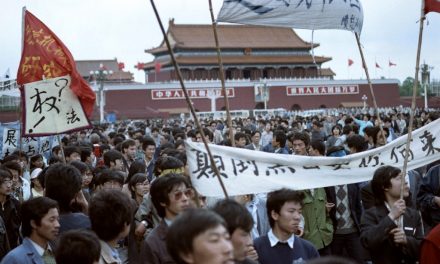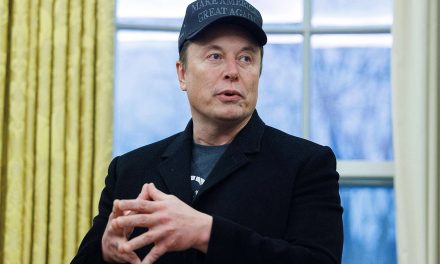The Twitter/Tesla/SpaceX boss’s business dealings with the Chinese Communist Party could threaten free speech, privacy, national security, and U.S. foreign policy goals.
By Jianli Yang and Fengsuo Zhou
Earlier this month, President Joe Biden rightly stated that aspects of Elon Musk’s business dealings deserve scrutiny, in response to questions about the involvement of foreign governments in acquiring the social media company Twitter.
As human rights activists seeking a democratic transition in China, we urge Congress to investigate how Musk’s ties with China could threaten free speech, privacy, national security, and U.S. foreign policy goals. Support for Musk’s innovative, free-market solutions to society’s needs and problems, and ensuring that his actions don’t endanger human rights and national security interests at large—should not be mutually exclusive.
While Musk has drawn recent controversy in the U.S—and applause from the Chinese Communist Party (CCP)—for suggesting that Taiwan should relinquish some of its freedom to the authoritarian mainland regime, his business activities have been a concern for U.S.-China relations for quite some time.
Musk’s companies have significant ties to China. With the success of Shanghai’s Gigafactory, China is already Tesla’s second-top market for Tesla EV sales. Musk has taken over $1 billion in loans from Chinese state-owned banks; and Tencent, a Chinese-owned technology conglomerate, has acquired a roughly 5 percent stake in Tesla.
On Chinese social networks like Weibo and WeChat, censorship is swift and ruthless. One can imagine circumstances under which the CCP will try to demand that Musk do its bidding by limiting what can be posted on Twitter, despite the ironic fact that access to Twitter is banned in China.
China, in recent years, has extended its repression machinery overseas, and its “50-cent army”—mercenaries hired by the Chinese government to police online content, who are reported to receive about 50 cents for each censored item—engages in widespread online mobbing. Saudi Arabia’s mobbing of its own online dissidents has occurred in part through pre-Musk Twitter. There’s no reason to think that the CCP will be shy about using similar tactics in the future.
SpaceX and its foreign suppliers appear particularly vulnerable to Chinese espionage, given China’s aggressive focus on overtaking the U.S. in the new space race. A recent Pentagon-commissioned study group found that “China appears to be on track to surpass the U.S. as the dominant space power by 2045.” As Washington lawmakers look to propel the U.S. space industry ahead of its principal rival, they need to ensure that contractors’ ties to the authoritarian regime don’t inadvertently further Chinese interests while undercutting America’s Space Force efforts.
No clear line exists between Tesla, which produces battery packets sought by the Chinese, and SpaceX, which possesses an array of classified national security secrets that would benefit the People’s Republic’s cutthroat, anti-American space program.
Further compounding concerns over Musk’s growing relationship with China is a recent op-ed from The Washington Post that outlines how Musk’s acquisition of Twitter could impact the platform’s policies over foreign influence operations. In its more benign form, Chinese government propaganda has involved using writers and entertainers to “tell China’s good story.” Of course, these celebrities’ careers are propped up by the CCP.
Twitter, like other mainstream U.S. platforms (Facebook, YouTube, LinkedIn, etc.), has had to cope with China and other totalitarian governments flooding their platforms with lies, often through fake accounts. China’s People’s Liberation Army—including the Strategic Support Force—now views cyberspace and near-Earth space as a cosmic battlefield, and is devoting significant personnel to this end.
Even the most talented, forward-thinking American visionaries, like Musk, aren’t immune from making the occasional error in their pursuit of greatness. That may not be the case with Musk, but it would be a grave mistake for Congress not to conduct the relevant due diligence inquiries.
Over the years, members of Congress have introduced various legislative proposals attempting to conduct the vetting necessary to provide the national security community with the answers it needs, and the public deserves. With this issue now coming to the public attention, it is time for the U.S. government to assess potential conflicts of interest between major U.S. corporations (including Tesla and SpaceX) and China; and to seek effective, long-term remedies.
Fengsuo Zhou is founder and president of Humanitarian China.























